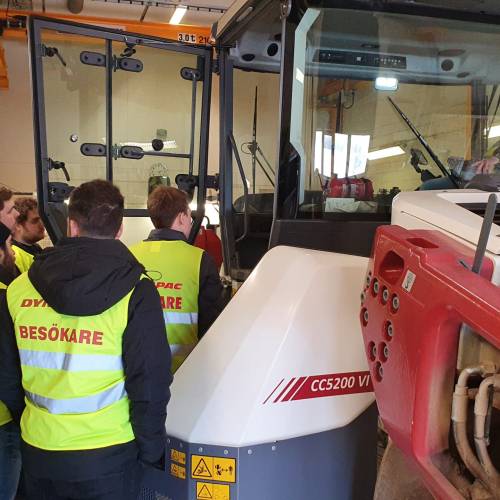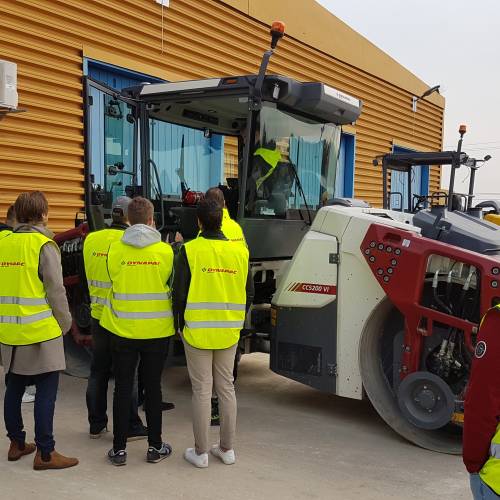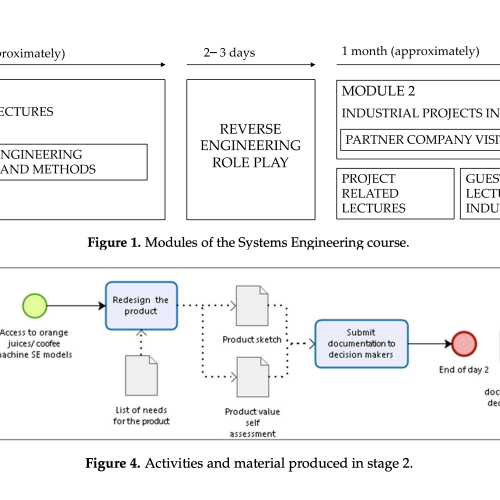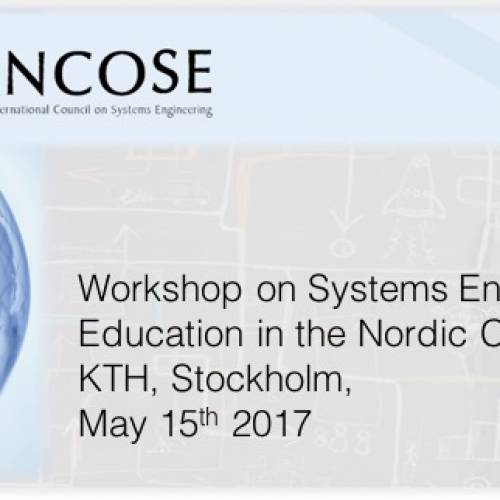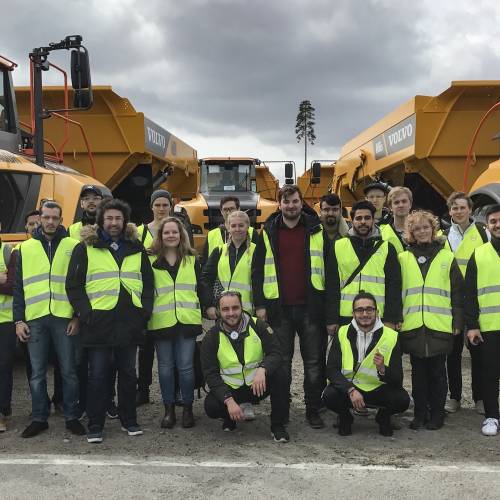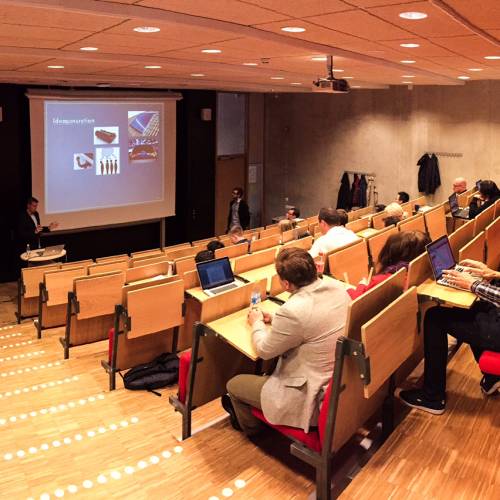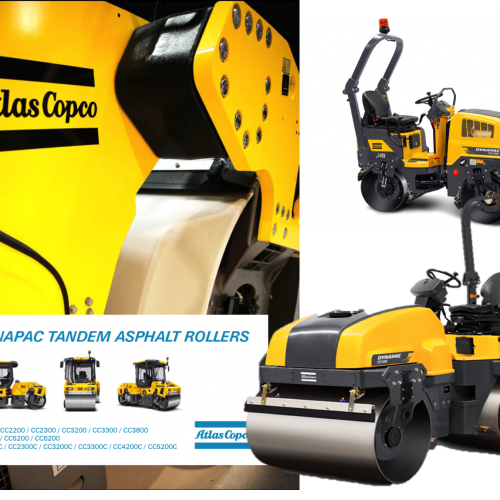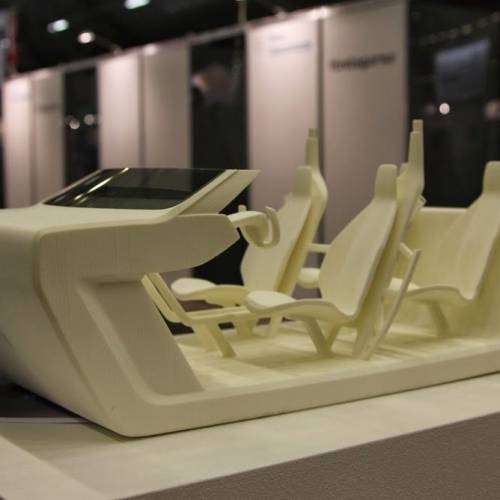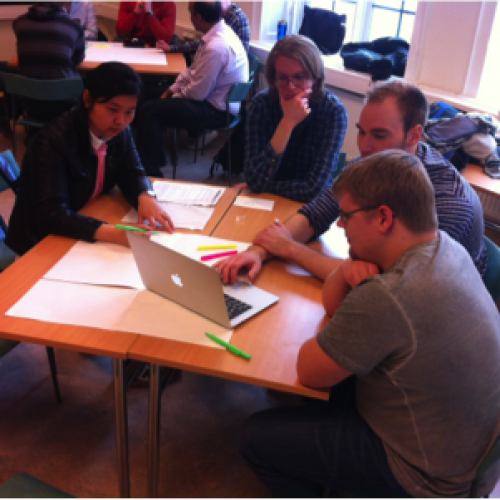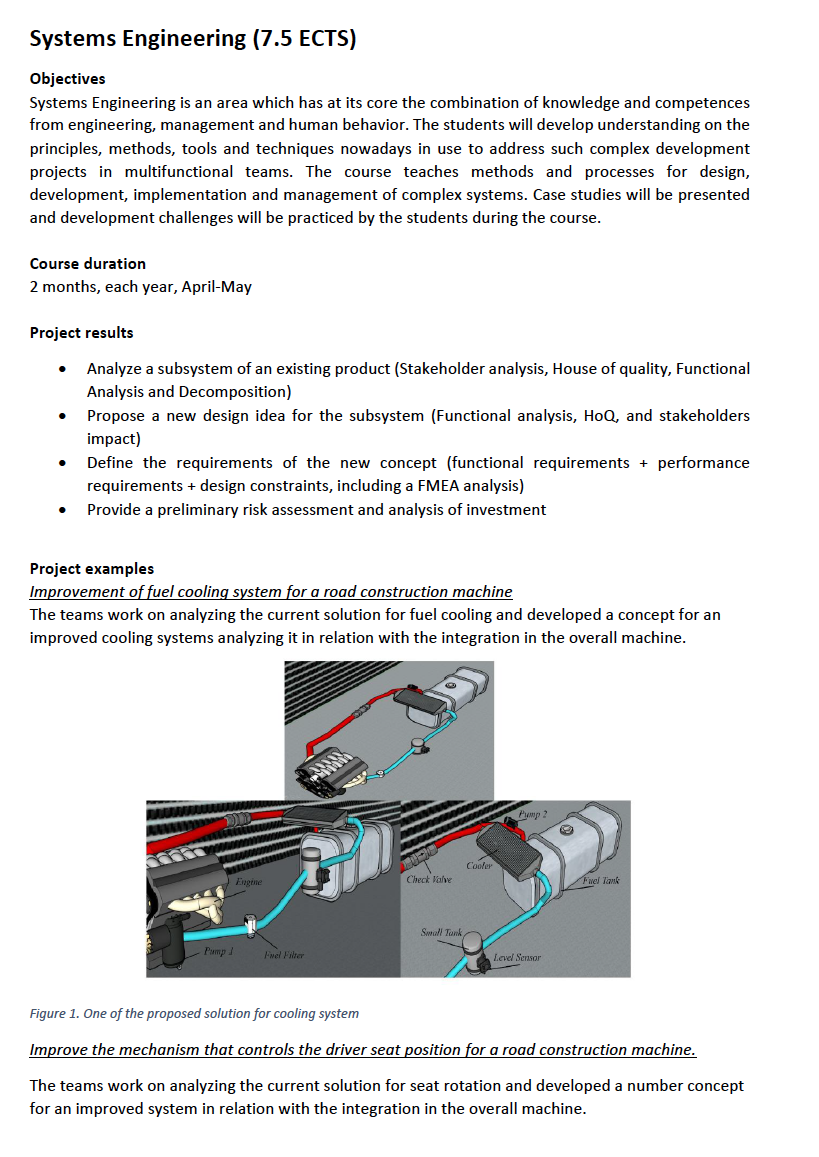Systems Engineering was originally introduced in response to the need to develop increasingly complex systems in the aerospace industry. The socioeconomic challenges related to globalization, population growth, economic interdependence, and sustainability are stressing the need for systems engineering competencies to be applied in different domains.
Systems Engineering projects require multidisciplinary skills and cross-functional design teams, including a wide set of disciplines, such as design, manufacturing, system analysis, knowledge management, and sustainability analysis. Course participants have the chance to acquire methodological and theoretical knowledge in systems engineering and to apply it in ‘real-life’ systems engineering projects in collaboration with selected partners companies.
We collaborate on a yearly basis with medium large manufacturing companies operating in:
- Construction Equipment Systems Engineering
- Aerospace Systems Engineering
- Road Construction Systems Engineering
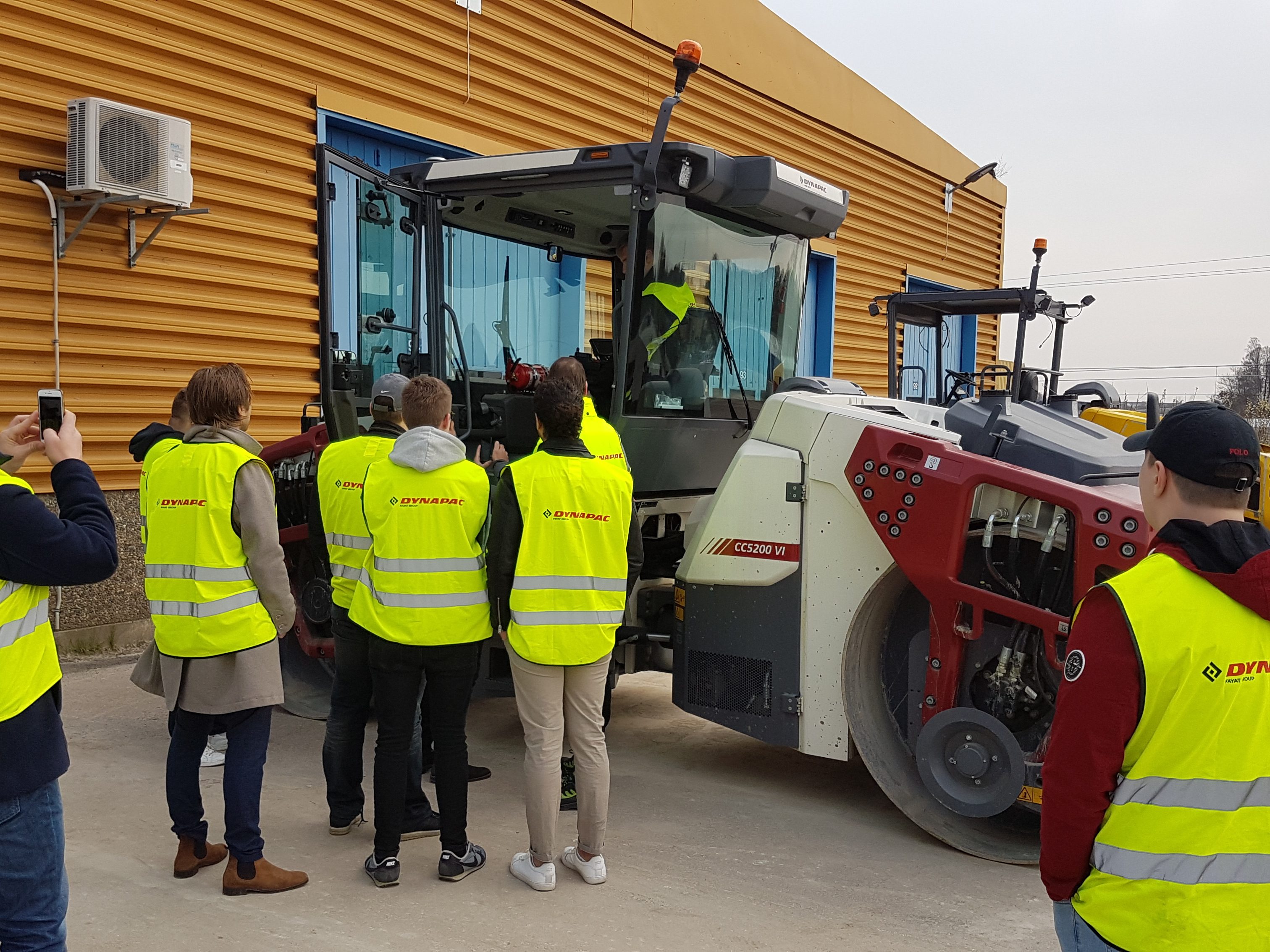
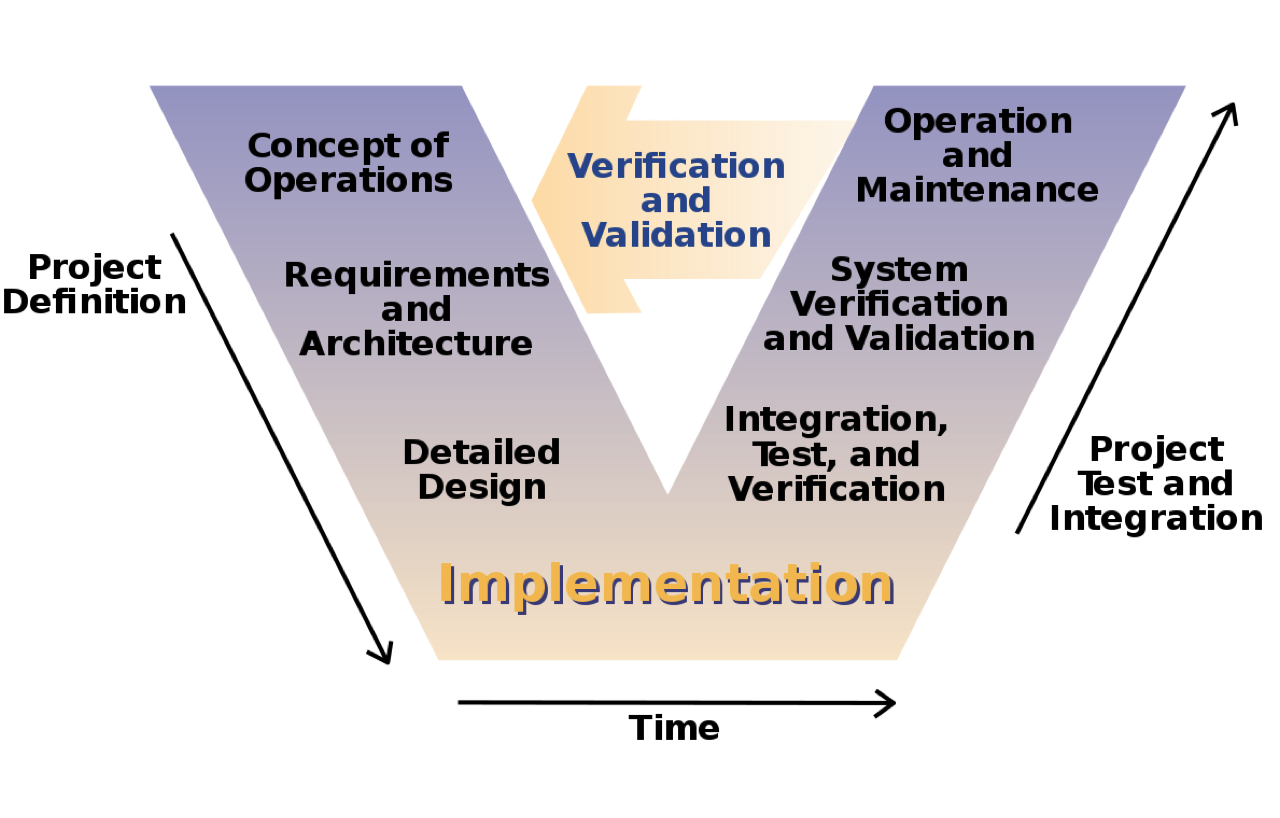
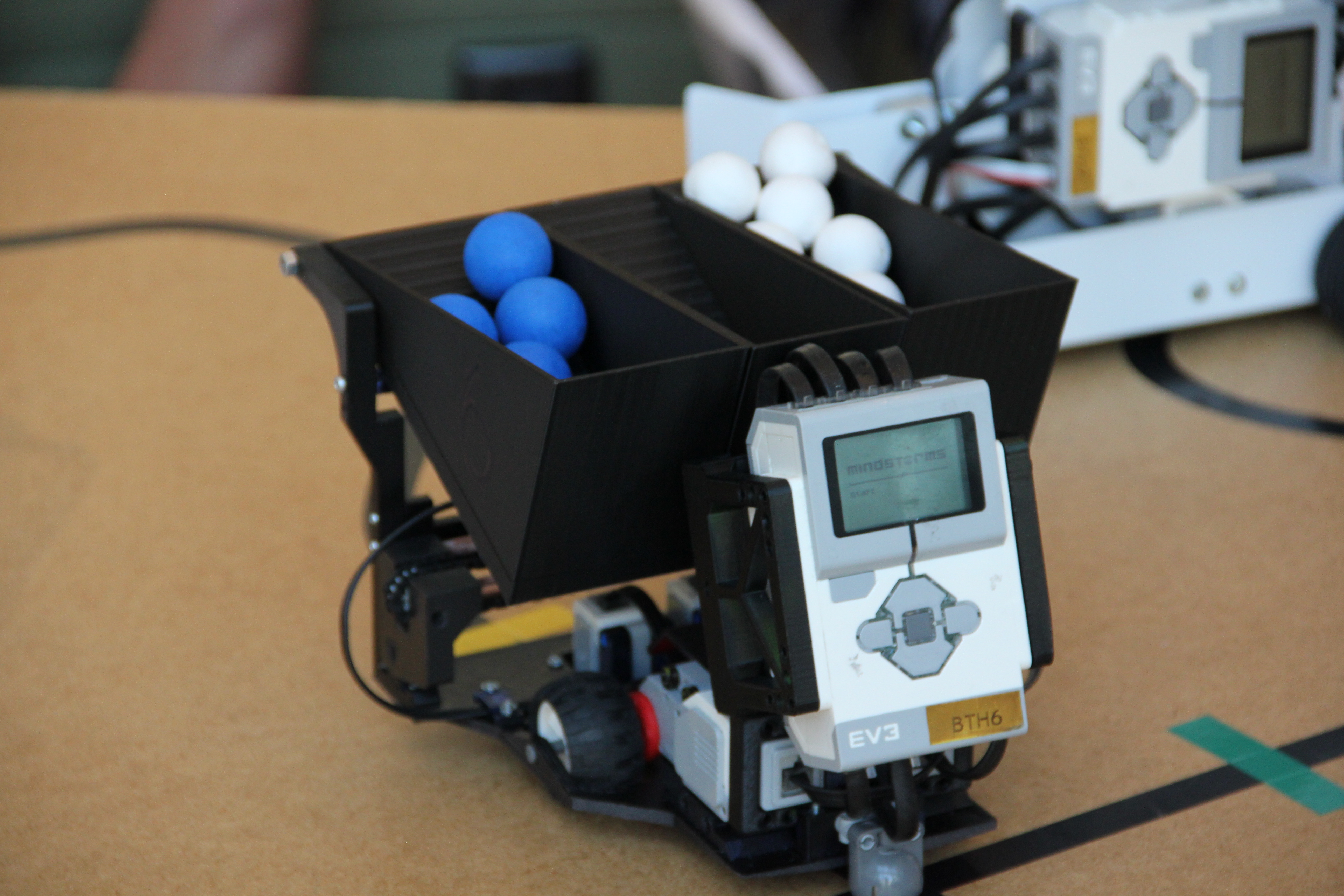
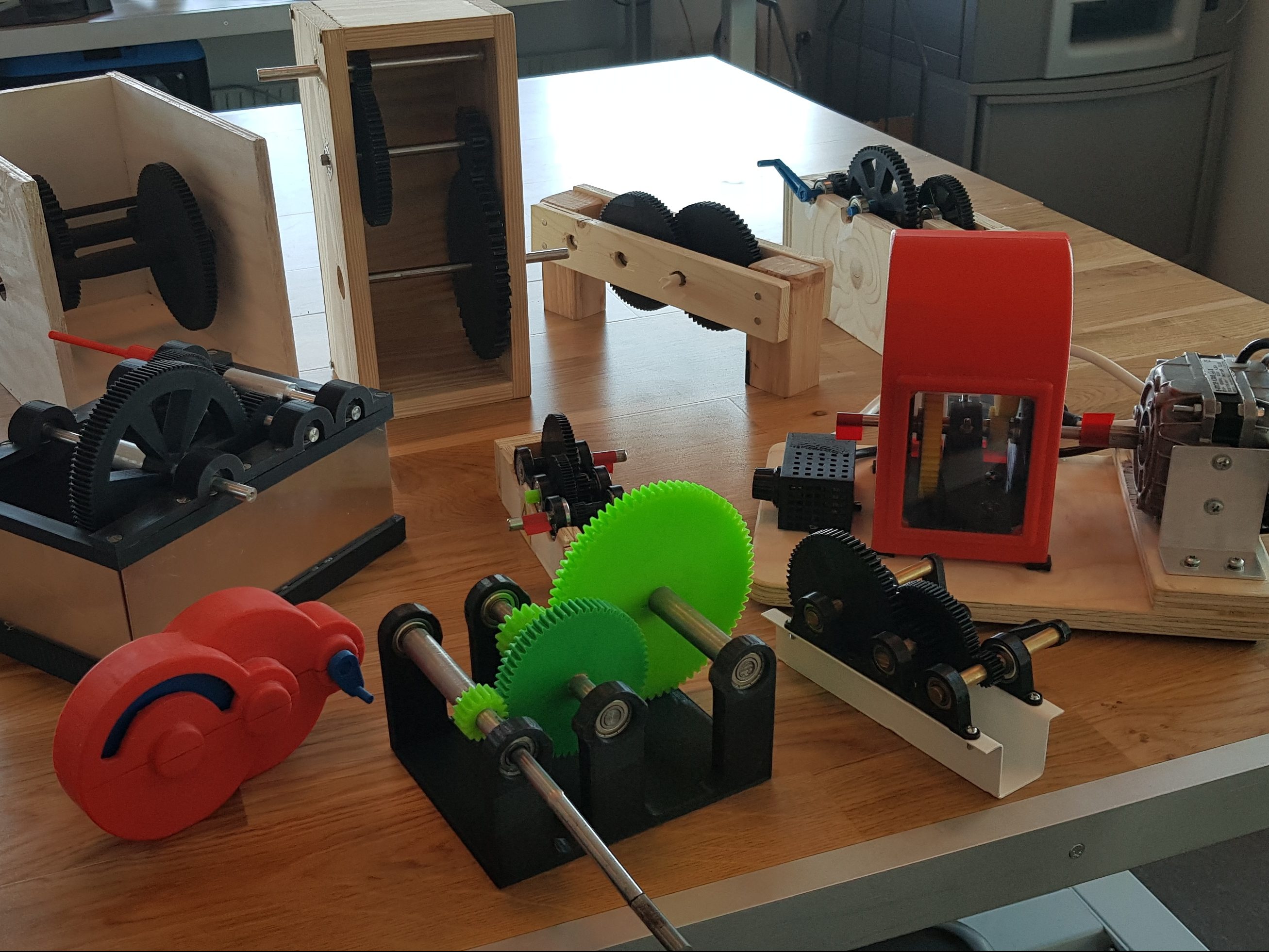
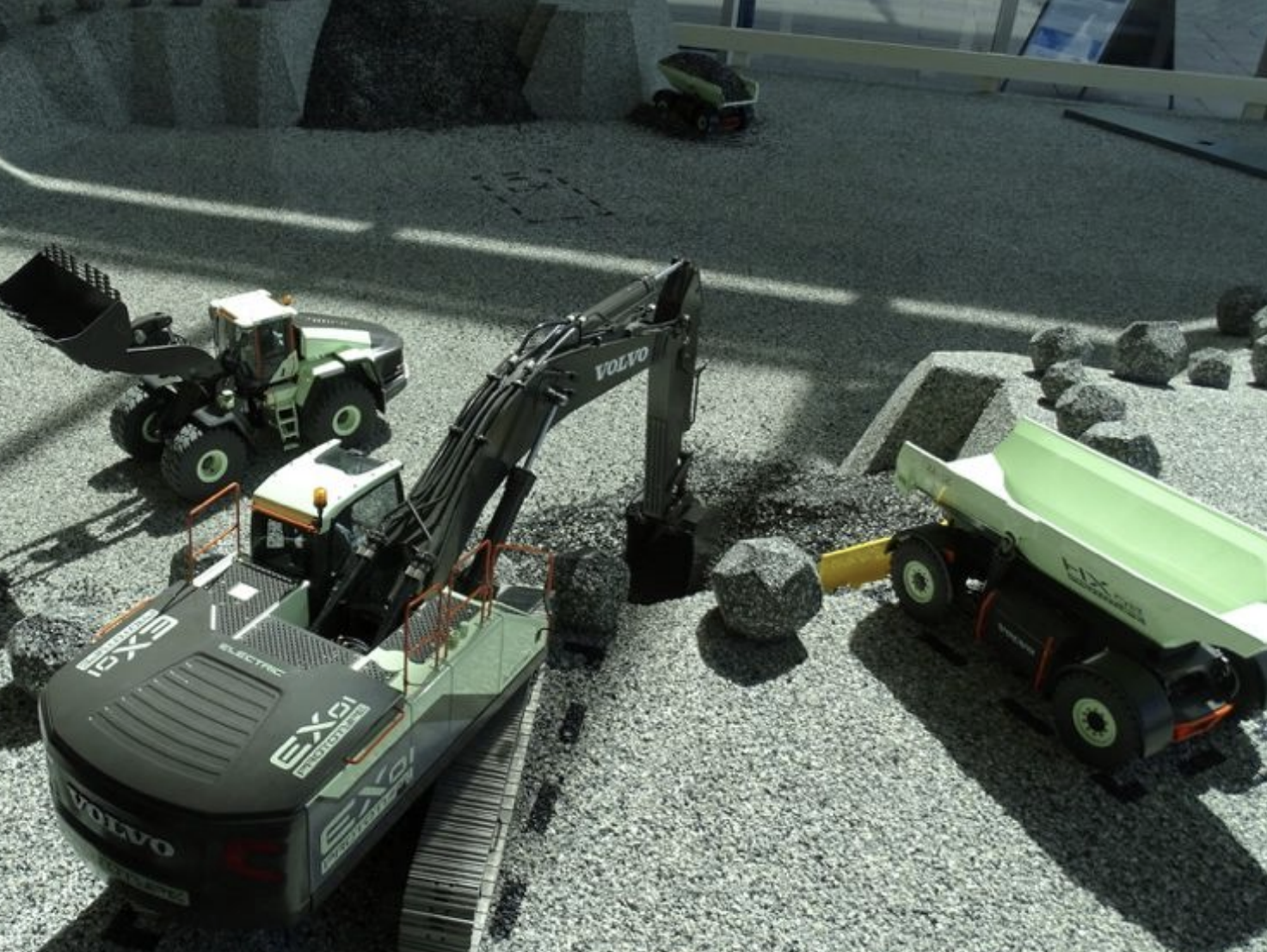
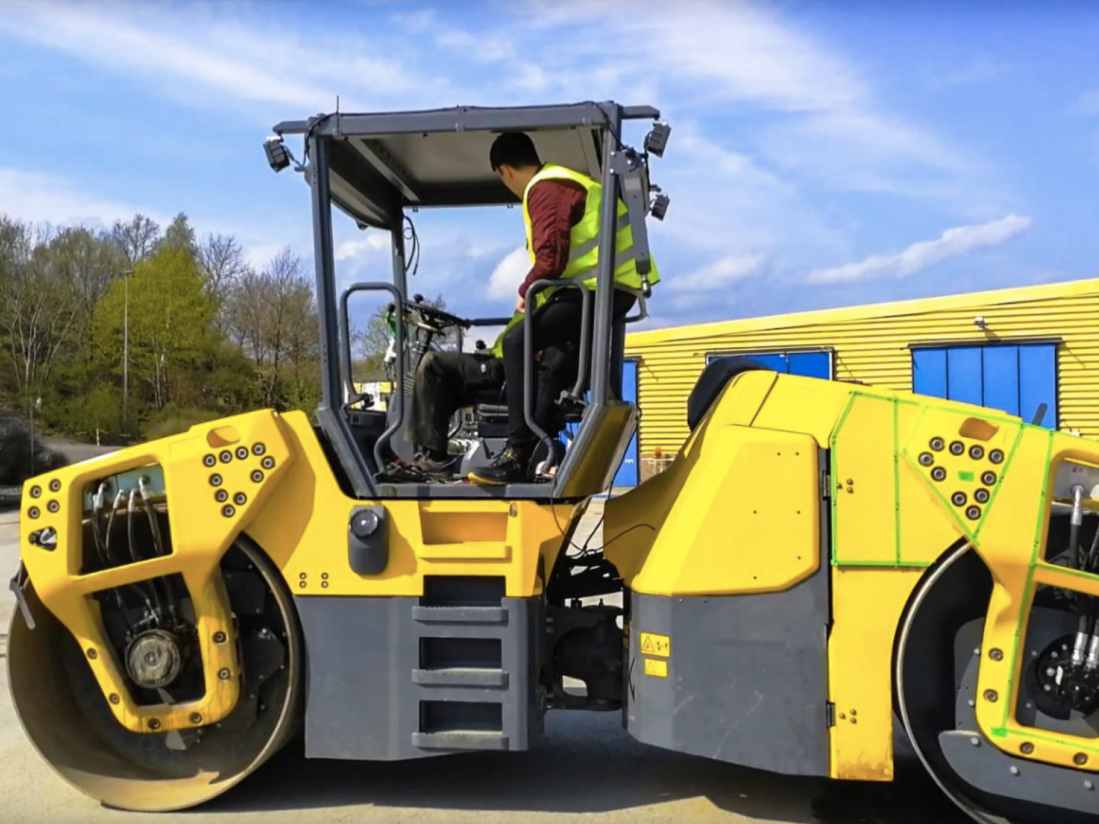
About Systems Engineering
The development of complex products and systems entail the consideration of multidimensional aspects (e.g hardware, software, service, human factors, equipment, facilities) that need to be seamlessly integrated to address the needs and fulfill the requirements of all the stakeholders involved.
Systems Engineering is an area which has at its core the combination of knowledge and competences from engineering, management and human behavior.
The students will develop understanding on the principles, methods, tools and techniques nowadays in use to address such complex development projects in multifunctional teams. The course teaches methods and processes for design, development, implementation and management of complex systems. Case studies will be presented and development challenges will be practiced by the students during the course.
Company Participation
For any questions or curiosity about company participation feel free to contact Alessandro Bertoni at alessandro.bertoni@bth.se
Course formalities
COURSE PURPOSE
Develop student's knoweldge and understanding on systems engineering, provide the competence and skills to apply systems engineering methods when appropriate, enable the students to critically analyse and judge systems engineering methods.
COURSE OBJECTIVES
The development of complex products and systems entail the consideration of multidimensional aspects (e.g hardware, software, service, human factors, equipment, facilities) that need to be seamlessly integrated to address the needs and fulfill the requirements of all the stakeholders involved.
Systems Engineering is an area which has at its core the combination of knowledge and competences from engineering, management and human behavior. The students will develop understanding on the principles, methods, tools and techniques nowadays in use to address such complex development projects in multifunctional teams. The course teaches methods and processes for design, development, implementation and management of complex systems. Case studies will be presented and development challenges will be practiced by the students during the course.
COURSE CONTENTS
- Systems engineering definition and fundamentals
- Stakeholders and needs analysis
- Requirements formulation and management
- Functional modeling
- Reverse engineering
- Systems engineering decision making
- Lean systems engineering
- Risk assessment and analysis of investment in Systems Engineering
AIMS & LEARNING OUTCOMES
On completion of the course, the student will be able to:
Knoweldge and understanding
- Identify when the use of systems engineering is desirable
Recognize what characteristics differentiate systems engineering from traditional product development
Describe how systems engineering methods are used in the development of complex systems
Explain how systems engineering can be applied for the development of sustainable product-service systems solutions.
Competence and skills
- Develop a solution for a systems engineering problem
- Describe the solution of a systems engineering problem by means of established systems engineering methods
- Apply systems engineering methods to the reverse engineering of a system
- Analyze the systems implications of a design modification at subsystem level
- Formulate a list of product and system requirements
- Identify the functions of a system and model their correlations and dependencies
- Identify and illustrate the boundaries of a system
- Analyze and illustrate the relations between the needs of the stakeholders and the engineering characteristics of a system
- Estimate the value and sustainability implications of a subsystem redesign from a multi-stakeholder and environmental perspective
- Identify and estimate the major risks related to a systems engineering project
- Produce an economic impact estimation of a systems design modification
Judgment and appraoch
- Summarize limits and potential of systems engineering methods.
- Justify the usability of systems engineering methods in different development contexts
- Compare and judge the correct application of systems engineering methods
LEARNING & TEACHING
The course features a combination of learning activities.
Frontal lectures on systems engineering theories and methods are combined with short classroom exercises where students actively work in groups on a defined task related to the lecture. The results of the short classroom exercise are then plenary discussed under the moderation of the teacher.
A reverse engineering role-play is organized as a central event of the course in a two days activity to give participants a first-hand experience of the systems engineering methods applied in the context of a reverse engineering exercise. The role-play is run in teams while the participants will ultimately individually reflect on the systems engineering dynamics of the role-play.
A course project is run in teams in collaboration with a selected partner company. The project is run in parallel with the other learning activities all along the period of study and will challenge the student in solving a systems engineering problem. The course project features a visit to the industrial facilities of the partner company to physically get in touch and test the product or systems subject of the project. A guest lecture from an industrial expert complement the company visit. The partner company will also host the final presentations of the course project, which will happen at the end of the study period.
Team coaching is provided along the course of the project and it is complemented by peer-evaluation in the form of class presentations and feedback about both the process and the results. The university educational platform is used as a virtual environment to support knowledge sharing among students’ teams and teachers. On the platform questions about the course projects are posted and updated to share the answers of specific questions to all the participants.
Interactive presentation methods (e.g. Mentimeter) are used to interactively collect feedback, create pool, quizzes and run questions and answers sessions, at specific moments in the course.
.
COURSE LITERATURE
- Weiss. “Product and Systems Development : A Value Approach” ISBN: 978-1-118-33154-5.
COURSE EXAMINER
Assistant Professor Alessandro Bertoni
Finalized projects
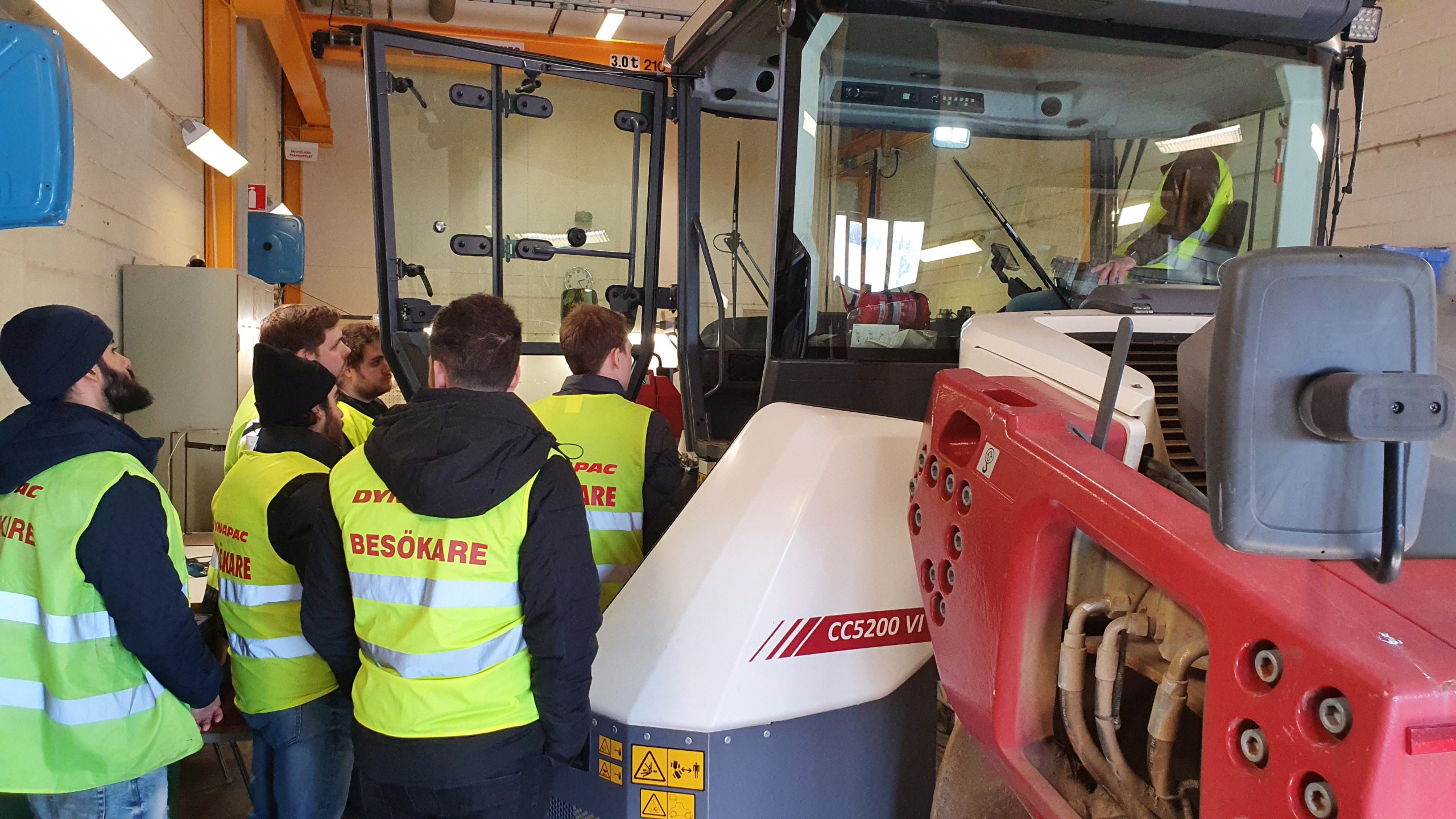
Systems Engineering students designing the future of compaction equipment
After two problematic years for physical collaboration, the systems engineering course has finally had the opportunity to revamp the traditional university-industry collaboration that has characterised it for several years. On the 30th of May five groups of students have presented the work done in collaboration with Dynapac Compaction Equipment AB…

Systems Engineering students innovating with Dynapac
On May 22nd the final presentation of the MT2563 Systems Engineering course took place at Dynapac (Fayat Group) headquarters in Karlskrona. 21 students from the mechanical engineering program presented the results of six systems engineering projects, focusing on the redesign of different sub-systems of Dynapac machines. This year topics focused…
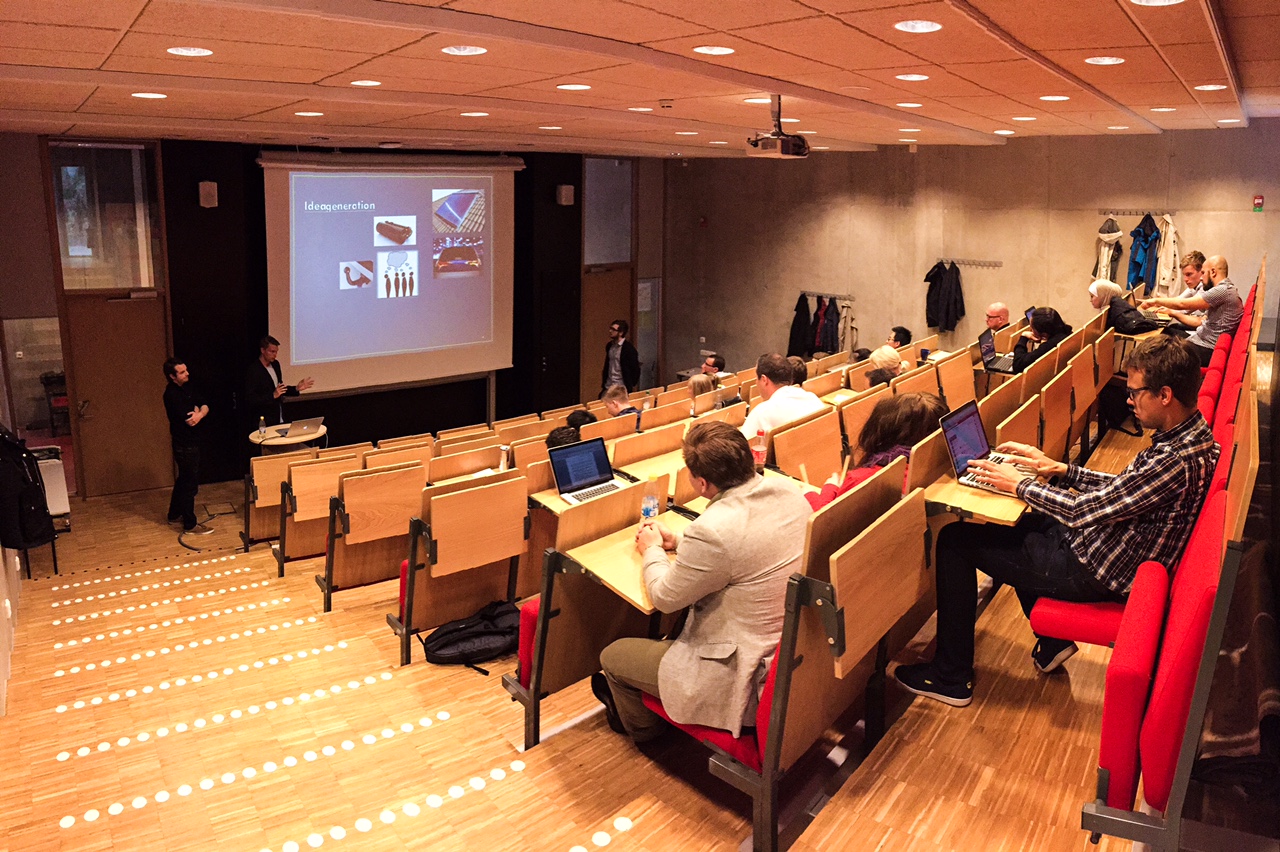
Systems Engineering Final Presentation: Innovating the road construction business
What is the next step in the road construction business? How do we create competitive advantage by redesigning the machines todays in use? These, and similar questions, have been addressed by the students of the Systems Engineering course that have presented their final project results in the morning of May…
More articles about Extreme PSS Innovation can be found here.
Course partners












Contact


